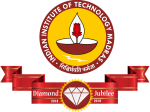Maternal health remains one of the critical issues in remote tribal regions. Bridging the healthcare gap for women in these areas has long been a challenge. Tribal women face unique obstacles, including geographical isolation, cultural practices, and lack of infrastructure, which prevent them from receiving adequate maternal care.
The Struggles of Access
In tribal communities, expecting mothers often struggle with getting basic prenatal checkups. Many live miles away from the nearest healthcare facility, and transportation options can be limited. Additionally, cultural hesitation toward modern medicine further complicates access to care. It is clear that building more hospitals alone won’t be enough to address these challenges.
Innovative Solutions in Maternal Healthcare
So, how can we make sure these women get the care they need? Telemedicine has proven to be one of the most effective solutions in these regions. Through mobile health platforms, pregnant women can connect with doctors who can monitor their health and offer advice without the need for frequent trips to healthcare centers. Additionally, NGOs are bringing midwives and healthcare workers directly to remote villages.
A Path Forward
While progress is being made, more needs to be done. Continued efforts to fund and support healthcare services in these regions will be key. Providing better education on maternal health and expanding telemedicine networks can ensure that no woman, no matter where she lives, has to face childbirth without proper medical care.










